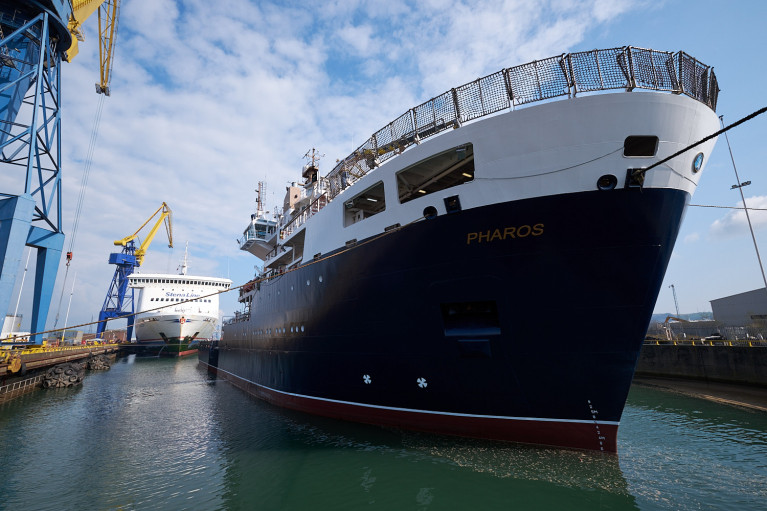Displaying items by tag: despite loss
Work Recovering at Harland & Wolff Group's Belfast Shipyard Despite Posting Loss of £25.5m
The shipyard owner of Belfast's Harland & Wolff has said its business is improving after announcing a pre-tax loss of £25.5 million for its latest reporting period.
Infrastrata PLC, which bought the company out of administration in late 2019, officially began trading under the Harland and Wolff name last September.
The group, which is also seeking to develop gas storage caverns under Larne Lough at Islandmagee, said it is in year three of a five-year plan to make the shipyard profitable again.
But it said the war in Ukraine and the ongoing energy crisis have hit those plans.
Publishing its accounts for the 17 months ending December 31 2021, Harland and Wolff Group Holdings PLC said revenues grew to £18.5m during the period, up from £1.5m for the year to July 31 2020.
The company has now absorbed pre-tax losses of around £36m in the last two reporting periods, with losses reaching £25.5m in the latest 17 months.
It put the losses down to “significant investment to support future growth of the business”, including the acquisition of three shipyards.
Appledore in Devon was acquired in August 2020, followed by Scottish yards Methil and Arnish in February 2021. All three now bear the Harland and Wolff branding.
The Irish News reports more on the shipyard group.
As pictured above is the Northern Lighthouse Board's aids to navigation tender, NLV Pharos which Afloat reported last month.




























































